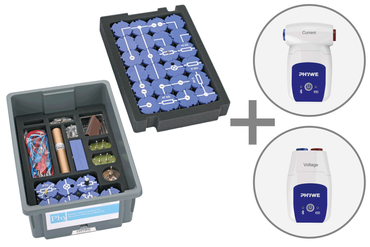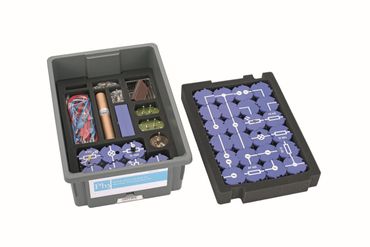Principle
The first experiment is meant as a preliminary experiment to gain a way of looking at the topic, and should be seen as a qualitative introduction to the laws of series connections.
The subsequent experiments provide a quantitative approach to the laws. The advantage resulting from not inserting R1 and R2 in series immediately in the second experiment, is that the procedure is then analogous to that in the first experiment, and that it enables the measured values for R1 and R2 to be compared with the value for R1.
Benefits
- No additional cable connections between the building blocks needed - clear arragned and quick setup
- Contact saftey due to puzzle blocks system
- Corrosion-free gold plated contacts
- Doubled earning sucess: Electric circuit diagram on top, real components can be seen unterside
Tasks
What happens when one filament lamp is supplemented by a second one in series?
1. Connect a second, identical lamp in series to one being already in a circuit and interpret the resulting effect.
2. Examine a series connection of two technical resistors to determine which laws apply to the current and the resistance in the entire circuit.


